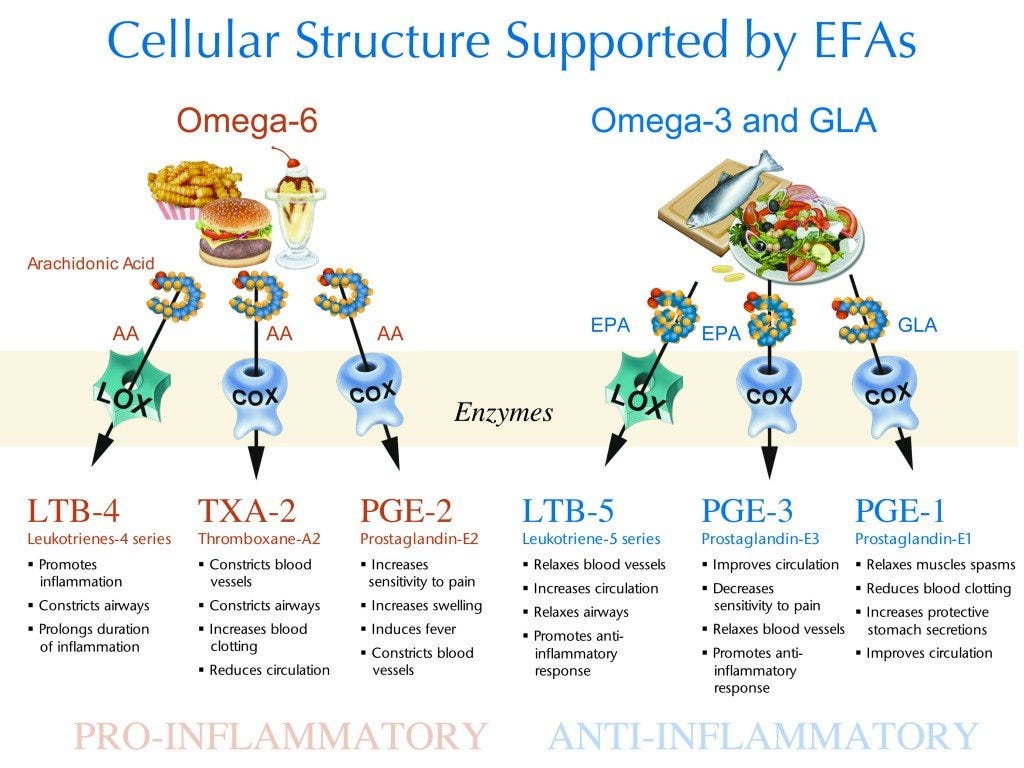
Non-steroidal anti-inflammatory drugs (NSAIDs) are often used to treat inflammation and pain associated with RA. However, a meta-analysis conducted by Lee, Bae, and Song (2012) suggested research supporting the role of omega-3 fatty acids (O3FAs) in reducing inflammation, with a particular influence upon the amounts of NSAIDs used in RA subjects.

A meta-analysis is a statistical procedure, which combines the data and results of multiple studies to produce a single estimate of a major effect, and such an approach provides enhanced precision (Lee et al., 2012). Lee et al. (2012) noted that other researchers have suggested that anti-inflammatory benefits of a daily O3FA intake of >2.7 g/day can be delayed and take 2 to 3 months, and a daily omega-3 PUFA intake of >2.7 g/day is required to achieve anti-inflammatory effects. Thus, Lee et al. (2012) narrowed their meta-analysis down to 10 studies (all randomized control trials) that met their inclusion criteria using 183 test subjects and 187 controls, which considered said daily dosages of O3FA at 2.7g/day (Lee et al., 2012).

O3FAs are postulated to reduce pain by competitively inhibiting the production and release of PGE2 (a principal mediator of inflammation in diseases such as rheumatoid arthritis and osteoarthritis) and LTB4 (a leukotriene that is produced from leukocytes in response to inflammatory mediators), which in turn inhibit the activation of the NF-k B (controls cytokine production thereby controlling the immune response), and thus the release of the inflammatory cytokines such as interleukin 1 beta and tumor necrosis factor alpha (involved in acute inflammation) (Lee et al., 2012). The meta-analysis by Lee et al. (2012) partially supported the above description of anti-inflammatory affects on RA; test subjects who consumed >2.7g/day of O3FAs reported marginal improvements in pain. However, test subjects did significantly reduce the amounts of NSAIDs required to manage inflammation and pain (Lee et al., 2012). Such an outcome is encouraging as NSAIDs have unfavorable side affects (stomach upset, vomiting, abdominal pain, and bleeding) (Rogers & Rowland, 2011).
References
Lee, Y. H., Bae, S. C., & Song, G. G. (2012). Omega-3 polyunsaturated fatty acids and the treatment of rheumatoid arthritis: A meta-analysis. Archives of Medical Research, 43(5), 356-362.
Rogers, N. V., & Rowland, K. (2011). An alternative to oral NSAIDs for acute musculoskeletal injuries. The Journal of Family Practice, 60(3), 147-148.
-Michael McIsaac
